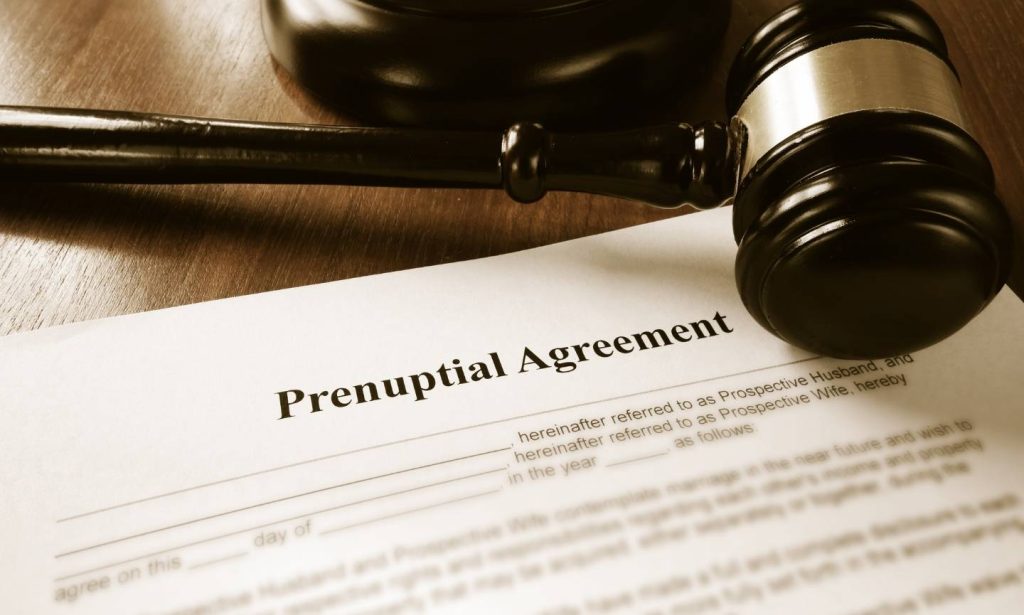Marriage is beautiful, but life can be unpredictable. That’s where a prenuptial agreement—better known as a prenup—steps in. It’s a contract that partners make before the wedding to safeguard their interests, properties, and future peace of mind. But how long does a prenup last, really? Let’s break it down and cover everything you need to know.
Factors Influencing the Duration of a Prenup

Not every prenuptial agreement is created equal. The length of time a prenup lasts can be influenced by several factors. Let’s dive into some of the biggest ones:
Significant Life Events
Life never stays still—and your prenup doesn’t have to either. Significant changes in circumstances can greatly influence the relevance and duration of a prenuptial agreement.
- Childbirth: When children enter the picture, priorities shift. Financial plans, inheritance goals, and even day-to-day decisions can change dramatically, impacting how long a prenup lasts or how it needs to be updated.
- Change in Financial Status: Whether one partner inherits considerable assets or starts a thriving business, this shift in the financial situation can either extend the prenup’s influence or call for modifications.
- Health Changes: A serious health condition might impact asset division or financial obligations set out in the prenup. Life-changing health issues can lead to renegotiating prenuptial agreements to protect both partners’ interests.
- Moving States or Countries: The enforceability of prenups varies by location. Relocating to a different state or country might mean reexamining your prenup to comply with new laws.
Sunset Clauses
Did you know that some prenuptial agreements come with a built-in expiry date? This is called a sunset clause. Just like the name suggests, a sunset clause means the prenup “sets” after a predetermined time or upon meeting certain conditions.
- Duration Clauses: These clauses specify that the prenup will expire after a certain number of years, like your 10th wedding anniversary.
- Life Events: For example, some agreements may have a sunset clause that kicks in after a major milestone, like the birth of a child, or after a certain amount of time has passed since retirement.
A sunset clause ensures that the prenup isn’t permanent and allows the couple’s relationship dynamics to evolve naturally over time.
General Lifespan of Prenuptial Agreements

So, how long does a prenup last? Let’s talk specifics.
Duration Until Divorce or Separation
Most prenuptial agreements remain in effect until divorce or separation. In the event of divorce, the prenup will dictate how marital assets, debts, and other elements are divided.
- Division of Property: The agreement will lay out what happens to separate property and marital assets.
- Financial Obligations: This could include alimony payments, debt protection, or credit card debt responsibilities.
- Child Custody Arrangements: While child custody rights and obligations are typically decided in the best interest of the children, prenuptial agreements can touch upon financial arrangements related to the benefit of children.
Duration Until Death
Some prenups last until one spouse passes away. When that happens, the prenup can affect estate planning and asset division. This can be particularly important in complex family situations, such as when one partner has children from a previous marriage.
- Estate Planning: The prenup can ensure that children from prior marriages inherit specific assets, which might be in line with estate plans that consider family law and financial disclosure.
- Marital Property Agreements: Upon the death of a spouse, the prenuptial agreement can specify what happens to the marital estate and the separate property.
Enforceability of Prenups
The duration of a prenup is also contingent on its enforceability—and enforceability can change over time.
Impact of Changes in Marital Circumstances
Changes in marital circumstances can directly impact the enforceability of prenuptial agreements.
- Wealth Disparity: Over time, a prenup that seemed fair at the outset may become unconscionable if the wealth disparity between spouses grows significantly.
- Undue Influence: If there is any sign of coercion, undue influence, or duress during the prenup’s signing, it might be deemed unenforceable.
- Modification Without Legal Requirements: If a prenup is modified without meeting legal standards, it risks losing its enforceability. That’s why you need experienced family lawyers for guidance.
State Laws and Regulations
State laws have a significant role in determining how long a prenup lasts.
- State-Specific Requirements: States have different standards for prenuptial agreements. For instance, California’s 7-day rule requires that both parties have adequate time to review the prenup with independent counsel.
- Public Policies: State public policies can change, affecting the enforceability of existing prenuptial agreements. The difference between community property states and separate property states could also come into play.
Modifying a Prenuptial Agreement
Your prenup isn’t necessarily a “set it and forget it” document. Life’s circumstances can change, and your prenuptial agreement may need to keep pace. So, when and how can you modify it?
When and How Can a Prenup Be Modified?
Modifying a prenup may become necessary as your circumstances change.
- Major Life Events: Changes such as having children, purchasing real estate, or starting a new business are major events that may warrant prenup adjustments.
- Financial Assets: If either party gains or loses considerable assets, a modification could help ensure fairness for both spouses.
- Mutual Consent: Both parties must agree to any modification in writing, just like when creating the original agreement.
Legal Requirements for Modification
The modification of a prenup is bound by strict legal requirements to keep the agreement valid.
- Legal Counsel: Legal counsel must be involved to ensure fairness and compliance with state laws. Modifying a prenuptial agreement without legal professionals can make it unenforceable.
- Full Financial Disclosure: Any changes require both parties to make a full financial disclosure to ensure the terms are understood by all.
- Writing and Notarization: The modification must be documented, signed, and notarized to hold up in court. This is a vital step in protecting each party’s financial future.
Replacing a Prenuptial Agreement
Sometimes modifying an existing prenup isn’t enough. You may need a new one.
Situations That May Warrant a New Prenup
- Significant Wealth Changes: Suppose there is a drastic change in wealth, such as an inheritance or winning the lottery—these considerable changes in financial circumstances may make the current prenup outdated.
- Post-Nuptial Agreement: Sometimes couples choose to replace their prenup with a post-nuptial agreement, especially if they failed to include important financial considerations earlier.
- New Business Partnerships: If either spouse starts a new business or enters a business partnership, a new prenup may be required to protect the business assets and specify their distribution in the event of divorce.
Process for Creating a New Agreement
- Consultation with a Family Law Attorney: Engaging a family law attorney who understands prenuptial agreements is crucial.
- Drafting the Agreement: Both partners must discuss and agree on each clause. Remember to address financial assets, property division, debt allocation, child support obligations, and more.
- Signing and Notarization: Just like the original prenup, it must be signed by both spouses and notarized to become a binding agreement.
Importance of Clear Terms in Prenups

The strength of any prenup lies in its clarity. Clear, well-defined terms can mean the difference between a smooth enforcement or a drawn-out court battle.
Definition of Key Terms
A good prenuptial agreement should clearly define key terms:
- Separate Assets vs. Marital Assets: It’s essential to distinguish between separate property (brought into the marriage) and marital property acquired during the marriage.
- Alimony Payments and Obligations: The prenup should clearly specify how, when, or if alimony will be paid in the event of divorce.
- Debt Allocation: Allocating responsibility for individual and marital debts can help avoid unnecessary conflict.
Addressing Potential Future Issues
- Child Custody Matters: Prenups cannot decide custody, but they can help set financial expectations around child support.
- Wealth Disparity and Business Interests: When there is a wealth disparity, it’s crucial to make arrangements that protect both parties fairly.
- Sunset Provisions: Including a sunset clause allows your prenup to evolve or end after a specified term, making it adaptable to new life situations.
Conclusion
A prenuptial agreement can provide peace of mind and asset protection, but how long it lasts depends on many factors. Prenups can last through marriage, end at divorce, or get replaced or modified. They can even have built-in sunset provisions to set an end date. The duration of a prenup, its enforceability, and whether modifications are needed depend on life events, state laws, and the evolving dynamics of marriage. Clear communication, proper legal guidance, and understanding the terms of the agreement ensure that your prenup remains relevant throughout your entire marriage.
Also Read: 12 Places to Go to Clear Your Mind in San Diego
FAQs
Yes, if it includes a sunset clause, a prenup can expire automatically after a specific period or upon meeting particular conditions.
There are no strict limits, but modifications must be mutually agreed upon, in writing, and comply with state laws to remain valid.
It can be, especially if it addresses estate plans and property division upon death. However, state laws may impact enforceability.
No, but you can create a postnuptial agreement after marriage to cover changes in financial situations or other circumstances.




